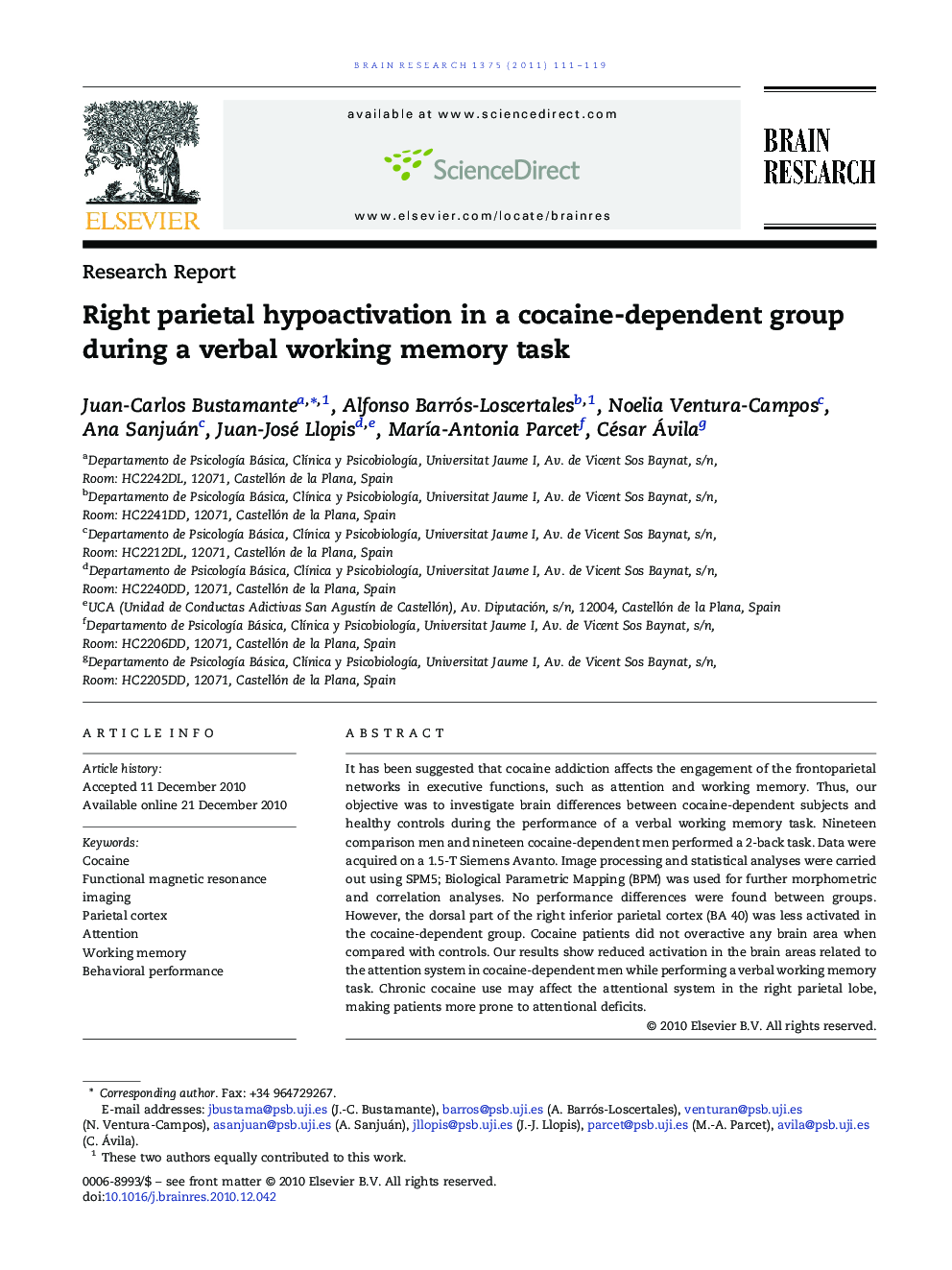| Article ID | Journal | Published Year | Pages | File Type |
|---|---|---|---|---|
| 4326157 | Brain Research | 2011 | 9 Pages |
It has been suggested that cocaine addiction affects the engagement of the frontoparietal networks in executive functions, such as attention and working memory. Thus, our objective was to investigate brain differences between cocaine-dependent subjects and healthy controls during the performance of a verbal working memory task. Nineteen comparison men and nineteen cocaine-dependent men performed a 2-back task. Data were acquired on a 1.5-T Siemens Avanto. Image processing and statistical analyses were carried out using SPM5; Biological Parametric Mapping (BPM) was used for further morphometric and correlation analyses. No performance differences were found between groups. However, the dorsal part of the right inferior parietal cortex (BA 40) was less activated in the cocaine-dependent group. Cocaine patients did not overactive any brain area when compared with controls. Our results show reduced activation in the brain areas related to the attention system in cocaine-dependent men while performing a verbal working memory task. Chronic cocaine use may affect the attentional system in the right parietal lobe, making patients more prone to attentional deficits.
Research Highlights► Chronic cocaine use may affect the attentional system in the right parietal lobe. ► Equal groups' performance can improve the interpretation of functional differences. ► The control of variability in gray matter increase the size of functional results.
